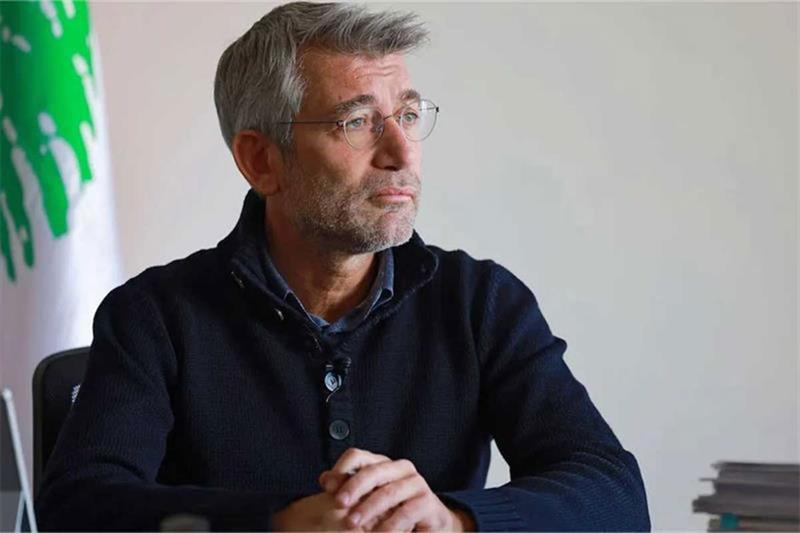
Lebanese Minister of Energy Walid Fayad
Lebanon has signed a deal to import natural gas from Egypt via Syria to boost power supply in the crisis-stricken country, AFP reported on Tuesday.
Lebanese Energy Minister Walid Fayad, Egyptian and Syrian officials signed the deal in Beirut earlier today.
"The importance of this deal... stems from the fact that it will secure an additional four hours of electricity per day following its implementation," Fayad told a press conference following the signing event.
In September 2021, Egypt agreed to supply Lebanon with natural gas for its power plants through Jordan and Syria in a revival of the Arab Gas Pipeline to help Lebanon in its longtime crippling electricity problem amid the country's worst-ever financial crisis.
The Egyptian gas is expected to activate gas-operated power plants that have been non-functional for 11 years.
In statements to Lebanese Al-Joumhouria newspaper on Monday, Fayad said the agreement stipulates that 650 million cubic metres (22.95 billion cubic feet) of gas will be exported to Lebanon through the pipeline annually to the Deir Ammar power station in the north.
This is expected to lead to the production of 450 megawatts of electricity, Fayad added.
The deal is a part of wider efforts – which include a separate electricity deal with Jordan – to boost supply by eight to 10 hours a day in the coming months, up from just two currently.
Two years into Lebanon's economic meltdown, the cash-strapped state is struggling to purchase fuel for its power stations.
With mains electricity effectively non-existent, many rely on private generators, but prices have increased after the government lifted fuel subsidies as global fuel prices soared.
Lebanon's crumbling electricity sector has cost the country more than $40 billion since the end of its 1975-1990 civil war.
Successive governments have failed to cut down on losses, repair crumbling infrastructure or even collect electricity bills regularly across the country.
World Bank and the US
Implementation of both the agreements still needs World Bank funding, which pledged financing, and US assurances that they will not trigger sanctions under the so-called Caesar Act which prohibits commercial dealings with Damascus.
The Syrian government is under US and Western sanctions for its role in the war, which has killed or disappeared nearly half a million and displaced nearly half of the population.
Despite the sanctions, the US has supported the resumption of natural gas flow from Egypt to Lebanon via Syria.
"We hope that after today, all hurdles will have been cleared so that we can receive World Bank funding and... final guarantees from the US, especially with regard to sanctions," Fayad told today's presser.
Gas supplier: Egypt
Today's agreement comes days after the signing of a framework agreement to export natural gas from Israel via Egypt to Europe.
Egypt achieved self-sufficiency in natural gas by the end of September 2018, with the current natural-gas production having reached 7.2 billion cubic feet per day.
The boom in the North African country's gas production has been supported by huge gas discoveries, the biggest of which is the giant Zohr field in the Mediterranean.
Zohr field was discovered in 2015 and is believed to be the largest-ever gas discovery in Egypt and the Mediterranean.
With its gas exports expected to to rise to 7.5 million tons by the end of the 2021/2022 fiscal year, Egypt plans to use its location on Europe’s doorstep to become a major supplier of liquefied natural gas (LNG) to the continent, which is transitioning away from other fossil fuels.
The EU block currently seeks to decrease dependency on Russian gas as result of war in Ukraine.
Egypt has the infrastructure for the transport and handling of natural gas, with the main network of 7,000km of pipelines, as well as a distribution network of 31,000 kilometres, and 29 gas-treatment plants in addition to two LNG facilities.
Short link: